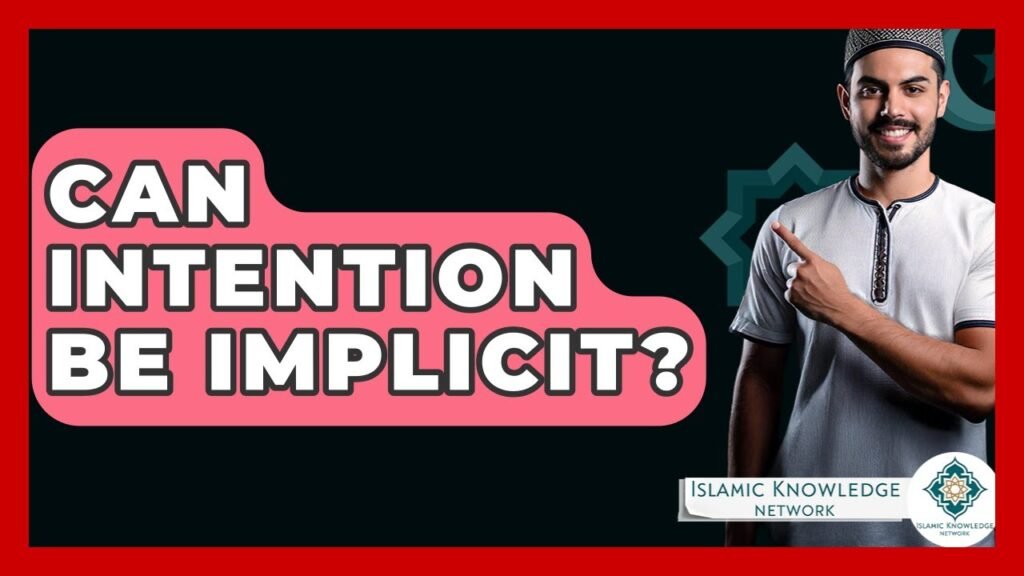You are here to read: Can Intention Be Implicit in Islam? Explore the Answer Here! – A Thoughtfully Written Guide Offering Spiritual Wisdom and Travel Advice for Every Pilgrim who is going on holy journey of Hajj or Umrah.
Can Intention Be Implicit? – Islamic Knowledge Network
In the realm of Islamic teachings, intention (niyyah) plays a crucial role, particularly in the performance of acts of worship. Scholars have long debated whether intentions can exist implicitly or if they must be explicitly stated. This discourse is vital not only for understanding the essence of worship but also for ensuring that our spiritual actions are aligned with Islamic principles. At Airlink Hajj and Umrah, we recognize the importance of intention in fulfilling religious obligations, especially during the sacred journeys of Hajj and Umrah.
As you explore this intriguing question within the Islamic Knowledge Network, we invite you to delve into various perspectives that highlight the nuances of intention. By understanding this concept better, you can enhance your spiritual practices and deepen your relationship with the divine. Additionally, stay informed with the latest updates and insights on Hajj and Umrah through our blog. Whether you’re preparing for these spiritual journeys or simply seeking knowledge, our resources are designed to guide you on this transformative path. Join us as we unravel the complexities of intention and explore its significance in our faith.
Can Intention Be Implicit in Islam? Explore the Answer Here!
In Islam, the concept of intention, or niyyah, plays a crucial role in validating actions. It is traditionally emphasized that intention must be explicit, particularly during acts of worship such as Salah (prayer) and fasting. However, the question arises: can intention be implicit in Islam?
While many scholars argue that intentions must be conscious and distinct, there is room for interpretation. Some assert that sincere actions rooted in faith can embody implicit intentions. For example, if a person engages in a charitable act out of a sense of duty and goodwill, their implicit intention may still fulfill the requirement of niyyah. The underlying sincerity, regardless of being explicitly stated, can still align with the spiritual objectives in Islam.
Understanding the nuances of intention is particularly relevant for those preparing for Hajj and Umrah. Our blog at airlinkhajjandumrah.com provides essential updates regarding Hajj and Umrah, helping pilgrims reflect on their intentions before embarking on these profound journeys. Whether explicit or implicit, the heart’s intentions guide believers in their quests for spiritual fulfillment.
Emphasizing the significance of intention, our resources can assist you in deepening your understanding and enhancing your spiritual experience. Join us in exploring the powerful interplay of intention in Islam.
You're at the middle of this awesome post at AirlinkHajjandUmrah.com through: Can Intention Be Implicit in Islam? Explore the Answer Here!. Keep reading, it gets better!
FAQ on Can Intention Be Implicit in Islam? Explore the Answer Here!
FAQs
-
What does intention mean in the context of Islam?
Intention, or "niyyah," refers to the inner motivation and purpose behind actions. It is a fundamental concept in Islamic practice that determines the validity and reward of deeds. -
Can intention be implicit or does it always need to be verbalized?
In many cases, intention can be implicit, as long as it is present in the heart. However, verbalizing it can help clarify one’s purpose, especially for significant actions like prayer or fasting.
-
How does implicit intention affect the validity of prayers (Salah)?
Implicit intention is generally accepted in Salah, as long as the individual is mindful and aware of their purpose when performing the prayer. -
Are there specific actions in Islam where intention must be explicit?
Yes, certain acts, such as making a formal declaration of faith (Shahada) or during the Hajj pilgrimage, require an explicit intention to fulfill those acts properly. - How can Muslims cultivate a conscious awareness of their intentions?
Muslims can cultivate awareness by regularly reflecting on their motives, seeking knowledge, and engaging in acts that reinforce a sincere intention for good deeds.
That wraps up Can Intention Be Implicit in Islam? Explore the Answer Here!. Thanks for sticking with us till here! Share this: Can Intention Be Implicit in Islam? Explore the Answer Here! with your friends.
Check our homepage at Air Link Hajj & Umrah for more awesome updates.
Some interesting posts are: 1: Umrah Mubarak, 2: When is Umrah closed 2026?, 3: When does Umrah start after Hajj 2026?
Mushu, an experienced Saudi Arabia traveler and writer, shares insightful tips and spiritual reflections to enhance Hajj and Umrah journeys for fellow pilgrims. He has been to Makkah and Madina from 2016 to 2023 many times and his posts will reflect this.







